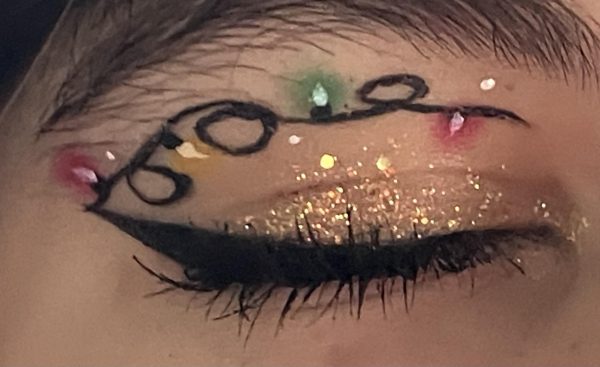Gender functions as social construct, fosters negative views

I readily admit that I obsess over rings more than Gollum does. I have always had a fascination with jewelry of any sort: necklaces, rings, bracelets and so on. I recently had a negative stranger tell me to stop wearing my rings, because “rings are for girls.” Why this stranger was oddly looking at my hands for such a long time, I could not tell you. I do, however, want to address this person’s social ignorance.
The Boundless website, an educational resource offering an array of textbook-like information, describes the difference between the words “sex” and “gender.” The word “sex” depicts the physical or physiological differences between males and females. This includes people categorized as intersex, individuals whose biological makeup does not allow for a clear distinction. The social construct of “gender,” however, refers to social or cultural distinctions to which a given sex feels a need to adhere. Male-sex babies are “assigned” as boys, and female-sex babies are “assigned” as girls. Doctors may or may not assign one or the other for a child considered intersex. There are many items specifically designed for a certain sex. Rings, however, are not exclusive to a certain sex, let alone a certain gender.
Psychology Today explains the incorrect social distinctions between males and females. Men supposedly qualify as thinkers, problem solvers, solitary stress managers and goal reachers. Women allegedly qualify as feelers, complaining attention-seekers and clingy, needy talkers. People predict someone of a certain gender to fit this mold quite accurately. As I scream “Listen morons, it is 2016!” I realize that an increasing number of individuals recognize that the self-imposed social construct of gender can limit us.
Masculinity and femininity are fragile abstract concepts, in my opinion. If a male does not “act like a man,” then society does not consider him masculine, and in turn decreases his worth. If you want me to pursue the social stereotype of a beer-guzzling, deep-voiced, anti-feminine and belligerent gym rat, then you will have to wait until I see a pig with newly grown wings soaring into the sunset. I should imagine my female counterparts do not want their worth to depend upon their fulfillment of the stereotypical prissy, model-like, emotional, subordinate and unintelligent air-head. This leads to the concept of gender roles, where males and females must do certain things to keep on good terms with society. The Boundless website also explains that gender roles impose upon individuals at birth, continuing through four major agents of socialization: family, education, peer groups and mass media. Why, throughout the ages of history, have we allowed such a concept to set us back? I feel comfortable and almost better about myself when I wear my rings or my especially tight skinny jeans. I am living life authentically, listening to my inner thoughts and not the drowning masses of unimportant opinions.
The ideas of masculinity and femininity have soaked into all parts of societal culture. Take clothing, for example. Certain clothing items may have specific differing designs for different biological makeups, but females face societal pressure to dress to sexually impress, while males usually get a pass on their lack of fashion sense. If a female wants to wear sweatpants or leggings, let her choose. If a male wants to focus on other aspects of life besides fashion or decides to make fashion his career, let him choose. People nowadays cannot mind their own business.
Instead of expecting so much of others by using the aging and decrepit concept of gender roles, I say we expect more of ourselves. We should learn to appreciate ourselves and others for our unique tastes. I like myself a sufficient amount, so I decided to put a ring on myself. Beyoncé can eat her heart out.


